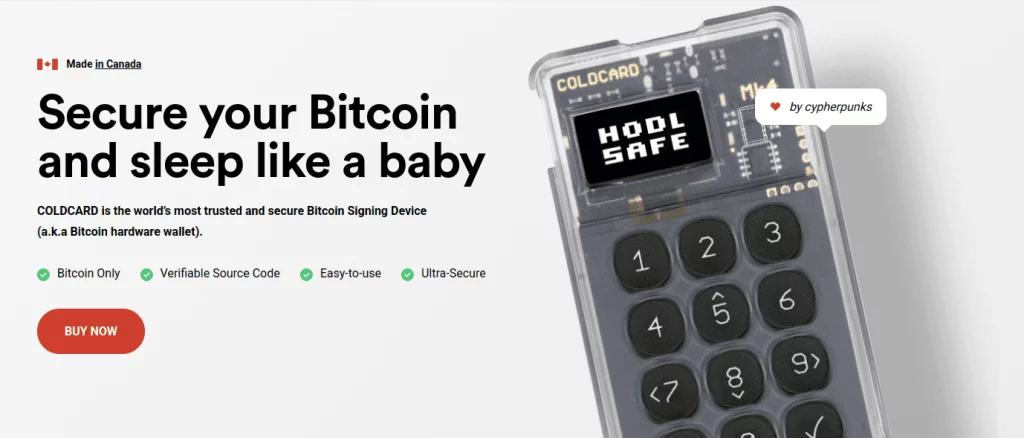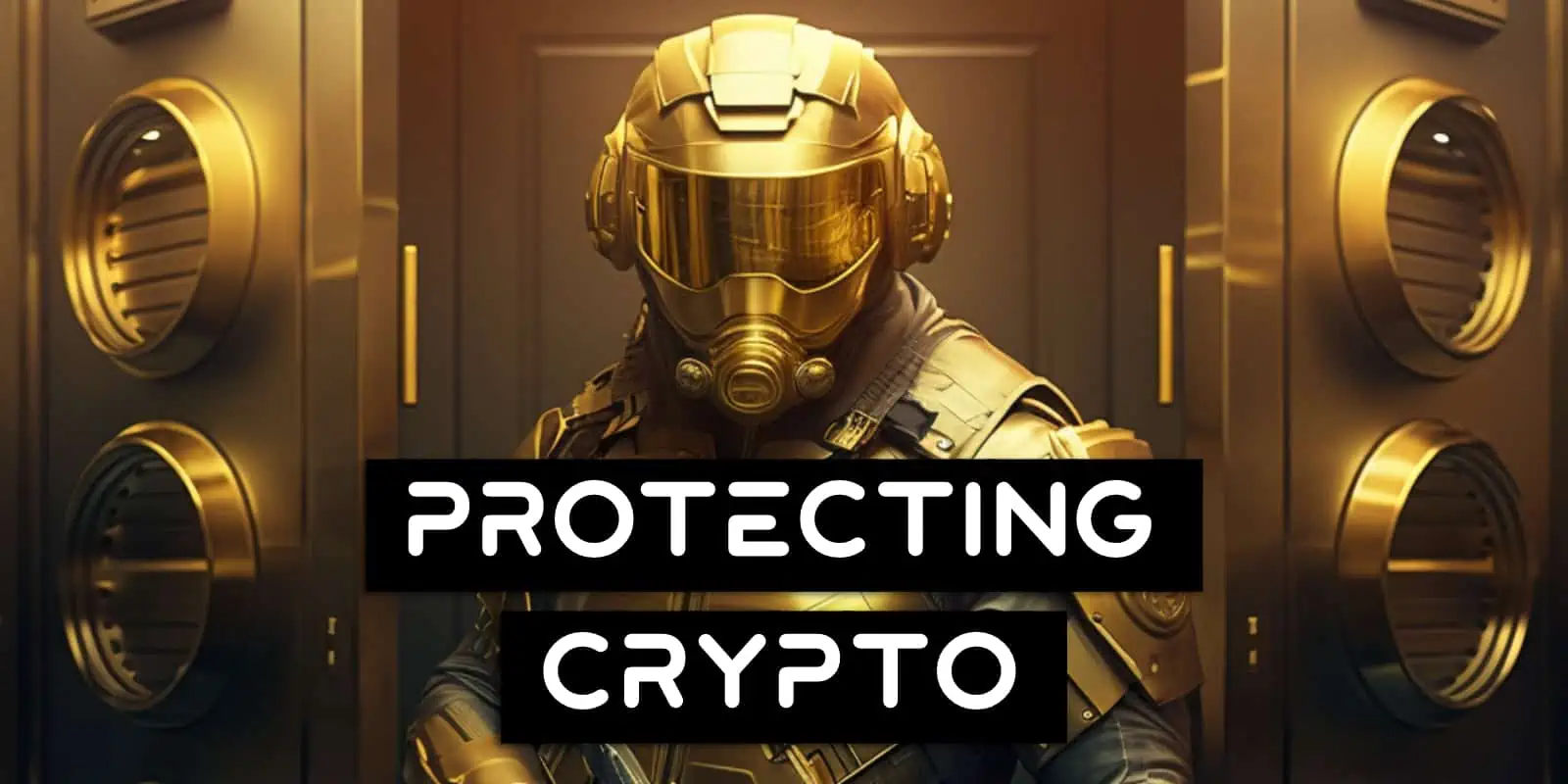Regardless of whether you’re learning about Bitcoin, buying some of it or just testing it out, at some point you’re going to want to know how to protect it. Learning how to protect your crypto is a very important step on your Bitcoin journey as it means you’re starting to take responsibility for your wealth and ensuring it’s protected well.
For decades staff at Athena Alpha have quite literally gotten up every day and read about, worked on and secured all things computers and networking. We’ve discovered and disclosed core data breaches for state level businesses. We’ve served real computer and networking clients for over a decade. We’ve completed degrees on the core infrastructure of the global Internet and configured, maintained and secured vital critical infrastructure for telecommunication networks.
We’re not stating this to brag, we’re stating this to make it clear: we are not generic main stream media journalists or randomly hired writers that most crypto exchanges use to publish their “security guides”. We are actual experts in these fields and bring all this expertise to our focus on Bitcoin. It’s why we have so many Privacy and Security guides!
From the $100 plastic WiFi router you got from your ISP to the random smart light bulb sitting in your lamp to your passwords. It all contributes to how secure (or not) your bitcoins are. So in this piece we’re going deep. Super deep. Not into Bitcoin, but instead into Cyber Security and how to protect your Bitcoin wallet.
Contents
Key Takeaways
This is a longer article because knowing how to protect your crypto wallet can take on many forms. So if you want just the tldr:
- Use A Hardware Wallet: Use a Hardware Wallet and ensure it’s bought anonymously
- Use A Self-Custody Wallet: Download and use your own, private wallet
- Back Up Your Seed Phrase: Use a strong password and write down your seed phrase
- Seed Phrases Never Touch Computers: Store it offline only, no pictures, no computers
- Separate Your Bitcoin: Have a cold storage stash as well as a hot wallet for day to day
- Know About Scams: Ensure you read up on the most common Bitcoin Scams
- Practice Excellent Cyber Security: Use a password manager, 2FA, keep software updated
- Security Through Anonymity: Don’t tell friends, family or social networks you own bitcoin
How Hackers Steal Crypto

Source: Lord Of The Rings
In order to protect your bitcoin we first need to understand how crypto wallets get hacked. At this point we’d also like to make the distinction between Bitcoin (the network) being hacked and your personal Bitcoin wallet being hacked.
The Bitcoin network is the largest, most secure digital network on the planet. Currently protected by an impenetrable wall that is backed by millions of Bitcoin miners. Attackers would have to somehow overcome around 500 Exahash per second to breach it (1 exahash = 1 quintillion hashes). It hasn’t happened. Ever. And Bitcoin the network has had a perfect, 100% up-time for over 10 years now.
>> Dive Deeper: What Is Bitcoin Mining?
How safe your personal Bitcoin Wallet is from hackers is entirely different. Crypto wallets can absolutely be hacked and people and companies have lost billions and billions of value from these hacks. Thankfully, we can use what they did wrong as lessons to help you. The top ways crypto wallets are hacked include:
- Scams (phishing, SIM swaps, social engineering, blackmail, romance, ponzi etc)
- Hacking your centralized exchange account to steal your funds
- Hacking your cloud storage that contains your seed phrase
- Hacking your computer to install malware or to steal stored seed phrases on it
- Creating malicious “fake wallet apps” on the Google/Apple app stores that steal your funds
Our Bitcoin Scams piece goes into specifics on how all of these types of tricks and hacks work. We’d highly recommend reading it if you want to protect your funds as once you read and know about how most scams work, it will help throw up big red flags in your mind if you do ever come across them in real life.
How To Protect Your Crypto From Hackers
When it comes to protecting your bitcoin from hackers be mindful that it’s an ever evolving field. Bitcoin changes fast, so it’s wise to keep up to date with it, at least until Bitcoin in general matures more and things settle down.
This is why we have our Athena Alpha Pro membership which not only helps to support the site, but ensures people with funds they don’t want to lose have the best information available to protect their bitcoin from hackers for decades.
Use A Hardware Wallet / Cold Storage
Having a modern and well known Hardware Wallet that enables you to keep your bitcoins in cold storage is possibly the most important way to protect yourself and your crypto from hackers. We’ll say this again: If you have funds you don’t want to lose and want to secure your bitcoin wallet then get a Hardware Wallet!
Hardware Wallets work by taking your seed phrase off of your malware infested computer or phone and fully separating it onto a device professionally designed to protect it. They generate truly random Private Keys, store them securely, screen and prevent hacking and sign new transactions according to strict security guidelines. They’re the best way to store crypto hands down.
This means that if someone hacks your computer or you download some fake app on your phone they might be able to see your bitcoin wallet balance… but they crucially won’t be able to spend it. This is step 1 when creating a secure bitcoin wallet and gives users a huge, huge increase in security.

They come in many shapes and sizes with capabilities ranging from utter garbage to amazing so it’s important to not just buy the first shiny one you see that’s got ads plastered everywhere. We publish full reviews and guides on many Hardware Wallets including Airgap Wallets. If this is something you’d like to see again, please support us via a Pro membership.
Tip: Secure your cryptocurrency with a well known and proven Hardware Wallet
Self Custody Your Crypto
Not your keys, not your coins.
Having a self-custodial Bitcoin Wallet (also called a non-custodial or private wallet) and holding your own Private Keys is the next most important thing to do when it comes to protecting your crypto. This is because whoever holds your private keys has full control over your funds. They can steal and spy on them at all times.
Many who have trusted third parties with their keys such as centralized crypto exchanges that have online wallets have lost all their bitcoin. People have even lost their fiat money (USD, Euro etc) by using Fiat Wallets too. Examples include: MtGox, Cryptsy or the most recent FTX and this happens so often we even have a dedicated Crypto Exchange Bankruptcies page!
If you have funds on a centralized exchange. Get. Them. Off. Now. You’ve been warned!
Back Up Your Seed Words Properly
Once you have a proper non-custodial wallet installed it’s important to make sure you keep it secure and back it up properly. For most modern wallets, this means protecting access to it with a long, strong password and keeping your seed phrase or mnemonic sentence (the 12 or 24 words that are generated for you) offline at all times.
The best way for beginners to do this is to simply write down the seed phrase words on a piece of paper (or two), laminate it and store it in a safe place (or two). This level of security along with a good password for the wallet is fine for pocket money levels of bitcoin. If you start needing to secure funds that you might have in your savings account or even serious investments then you’ll need to step things up as per our different levels.
Tip: As your funds increase, make sure your Bitcoin Security also increases along with. We have Advanced Bitcoin Security and Expert Bitcoin Security guides for exactly this.
Never Enter Your Seed Phrase Into A Computer
Along with properly backing up your seed phrase, it’s important to know that you shouldn’t ever enter your seed words on a website or into anything digital. The only exception is when you might enter it into a new Hardware Wallet to recover a lost one. Otherwise remember:
You might think your computer is hacker proof. It’s not. You might think it’ll never happen to you. It will. The way to properly manage a risk is to completely remove it. By ensuring the words never touch anything digital you do just that.
As ancient as it might sound, writing them down on paper and checking in on it every year or so to make sure it’s still in good condition and secure has proven to be one of the best ways to protect your keys. We even have a free Seed Phrase Card template you can download, print and use.
Separate Your Bitcoin
Consider having one wallet for the long term storage of the bulk of your crypto funds (savings account level funds or above) and a second, totally separate one to use day to day that contains your pocket money level funds. For most this is achieved by keeping their Hardware Wallet on a laptop or desktop computer while they spend smaller amounts on a Mobile wallet.
Physically separating Bitcoin use to one certain computer also helps to ensure that during your day to day life you don’t compromise your funds. This once again increases security but also increases complexity so we’ll leave it up to you to determine whether it’s worth it for you personally or not.
Tip: An old laptop lying around makes for a great dedicated Bitcoin Wallet
Know About Scams

Scams in crypto are legion. That being said they’re basically the same as what you find with computers and online security in general. This is excellent news for all beginners as it means it’s one less thing you need to learn to secure cryptocurrency!
From phishing emails to data leaks at companies you should be very familiar with it if you’ve ever read anything about scams or computer hacking over the past 20 years. The main difference with Bitcoin scams is that they’re usually trying to gain access to your Seed Phrase (those 12 or 24 words again) rather than you Gmail password.
You can protect your crypto from these types of scams by watching out for:
- Offers that guarantee large future gains
- Offers that involve “free” money, bitcoins or tokens
- Offers with time limited offers or countdown timers on them
- Messages that offer you jobs or opportunities out of the blue
- Deals that are too good to be true, no one gives out free money
- Complex investments that are technical to the point of confusion
- Messages asking you to click on links or login via a different website
- Offers or messages from famous people like exchange CEOs or celebrities
- Instructions to send funds to external wallets for “verification” or to “fix” your account
- Websites, emails or messages that aren’t secure (HTTPS), have different domain names, signatures or logos
- Requests for personal information such as your seed phrases, private keys, banking or credit card details or date of birth even if they come from apparently reputable sources like a bank, tax agency, police or exchange you use
Tip: Read over our list of the 20 Bitcoin Scams to learn how to spot and avoid them
Practice Excellent Cyber Security
If you spend more on coffee than on IT security, you will be hacked. What’s more, you deserve to be hacked
Richard Clarke, White House Cybersecurity Adviser
Upgrading your computer security is always a good idea, regardless of the amount of funds you’re protecting. There’s a lot of security gaps most regular Internet users make, so we’re going to go through a bunch of them in quick succession. Always try and improve your security!
- Password Manager: Use a password manager to generate and store long, unique passwords for your wallet and online accounts. A great option is Bitwarden. It’s open source and offers free personal accounts plus you can even host your own Bitwarden compatible server (called Vaultwarden) and ensure all passwords never leave your control
- 2FA: If the account has Two Factor Authentication make sure you use it. SMS based is better than nothing, but App based is far better if you have the option
- Keep Clean: Make sure you install the least amount of apps possible on phones or laptops. With every app you get another hole in your security, plus it slows your computer down too
- Keep Clean Online: Similar but slightly different, make sure you sign up to the least amount of online services possible. Most people reuse passwords meaning that a data breach somewhere turns into a breach everywhere. Even if you don’t reuse passwords, the more services you have going, the more risks you run
- Updates: An easy one, always make sure your software is kept up to date
- Security Breaches: Stay updated about security breaches and how they may affect you. Use Have I Been Pwned to check if your account has been compromised
- Avoid Public WiFi: Free or public WiFi can be great… but also introduces many potentially bad actors that can intercept and spy on traffic. At a bare minimum, try to avoid using them with the computer that has your Bitcoin wallet on it
- Network Security: Make sure your home WiFi network is using at least WPA2 security with a strong, unique and long password. This shouldn’t be your mobile number, dogs name or something that’s only 10 characters long. Aim for a randomly generated 16+ characters or more combined with all the trimmings of upper case, lower case, punctuation etc. Also consider the devices that are permitted on your local network carefully. Many spy on and send diagnostic metrics back to their manufacturer so a good firewall or completely separate subnet can be another excellent enhancement
- Mobile Security: Make sure your mobile has a strong, unique password (not a pin!) lock on it. Again aim for 16+ characters and make it random. Also give serious consideration to whether or not it needs any Bitcoin wallet or crypto related information on it at all. While mobiles are kept with you, they can also easily be lost or stolen so making sure the thief doesn’t then have access to or knowledge of your Bitcoin funds is important
- Signing Verification: Ensure that any application files you download or update have valid PGP signing keys and that their checksums match what the developer indicates.
Proper security is about creating layers upon layers of protection to slow down and or stop attackers. The more you can increase your Cyber Security, the more of these protective layers you introduce.
Tip: You don’t have to do everything all at once, you can bookmark this article and come back to learn about and check off the next item in the list as you build up your security.
Stay Anon
I don’t know why people are so keen to put the details of their private life in public; they forget that invisibility is a superpower
Banksy
Last be absolutely not least is anonymity. It’s hard to overstate how important containing certain information about yourself can be. All it takes is just one person to know what you have and it will never be a secret again.
You can have 1,000,000 bitcoins that you carry around in your mobile hot wallet (like a complete moron) and no one would know unless you tell them. It seems simple enough not to tell people, but most can’t stop sharing their life on social media, posting pictures of their hardware wallets, bragging about how much they made during the last Bull run and so on.
For once, this security measure requires you to not do something. Don’t tell friends or family that you own bitcoin. Don’t share screen shots or information about your wallet software, setup or configuration. Don’t link your personal identity to the idea of you owning cryptocurrency and obviously don’t tell anyone if your investments hugely increase in value. Don’t do this:
If you’d like some motivation as to why anonymity is a superpower, perhaps have a quick read through some of the Known Physical Bitcoin Attacks list that Jamerson Lopp maintains. It details dozens of terrifying cases. This is very serious stuff here! Do not simply give away your anonymity!
While the day may finally come where you are forced to reveal you own billions of sats, don’t make it your unforced error. Be sensible with the information you share and try and keep all references to Bitcoin separate and hidden as best you can. Hide your Full Bitcoin Node in a cupboard. Remove the “Bitcoin” stickers from your laptop. Change the “Stack Sats” wallpaper on your phone. Be one with the no coiners.
You don’t have to never talk about Bitcoin, but don’t actively bring it up and if anyone asks, just tell them that unfortunately you never got into Bitcoin as you just don’t have any funds spare to invest. Such a shame.
Example Setup
That’s a lot of information. We did say this was an “ultimate” guide, but too much data can often be overwhelming and cause analysis paralysis so to help bring things back to being simple let’s give a very basic example on how to keep your bitcoin safe.
The safest place to keep crypto is in your own self custody wallet. A great example of a Bitcoin Wallet that takes care of your safety, privacy and security is Sparrow Wallet. If you have “pocket money” levels of crypto you can just:
- Install Sparrow Wallet and create a new software wallet
- Write down your seed phrase on a piece of paper
- Send a small test amount of sats to the new wallet, delete it, restore it from the seed phrase and confirm you can spend those sats
- After testing, transfer your bitcoins to the new wallet
- Be mindful of scams, practice and actively improve your cyber security and stay humble
Just five steps that are free, simple and work well. That’s all it takes to keep your bitcoins safe and sound. If you’ve got larger amounts such as what you might keep in a bank savings account then you should step things up a bit. Keeping that amount of crypto safe could involve:
- Buying a reputable, well know and tested Hardware Crypto Wallet
- Install Sparrow Wallet and create a new wallet linked to your Hardware Wallet
- Send a small test amount of sats to the new wallet, delete it and reset the Hardware Wallet, restore them both from the seed phrase and confirm you can spend those sats
- Write down your seed phrase on two separate pieces of paper, laminate and store them in two physically separate, secure locations
- Be mindful of scams, practice and actively improve your cyber security and stay humble
Keeping your bitcoins safe also means ensuring your Bitcoin Privacy is excellent as well. This involves running and connecting to your own Full Bitcoin Node, using the Tor network and only buying or selling on No KYC Crypto Exchanges.
FAQ
What Is The Best Way To Protect Cryptocurrency?
– Use A Hardware Wallet: Use a Hardware Wallet and ensure it’s bought anonymously
– Use A Self-Custody Wallet: Download and use your own, private wallet
– Back Up Your Seed Words: Use a strong password and write down your seed phrase
– Seed Phrases Never Touches Computers: Store it offline only, no pictures, no computers
– Separate Your Bitcoin: Have a cold storage stash as well as a hot wallet for day to day
– Know About Scams: Ensure you read up on the most common Bitcoin Scams
– Practice Excellent Cyber Security: Use a password manager, 2FA, keep software updated
– Security Through Anonymity: Don’t tell friends, family or social networks you own bitcoin
Where Is The Safest Place To Keep Your Cryptocurrency?
Having a self-custodial Bitcoin Wallet (also called a non-custodial or private wallet) and holding your own Private Keys is the safest place you can keep your crypto. For funds at or above what you might keep in a savings account, also ensure you buy and use a Hardware Wallet.
How To Protect Crypto From Hackers
The best thing you can do to protect your crypto from hackers is buy and use a Hardware Wallet. You should also ensure the seed phrase that it generates never touches anything digital, ever. Finally you should practice good general cyber security such as using unique, long, random passwords, 2FA and keeping your systems updated.
How To Protect Your Crypto On Coinbase
As Coinbase is a private company, they can cut off the access to your funds at any time, for any reason. They are also a seriously large target for hackers and scammers so the best way to protect your crypto is by taking it off Coinbase. Use your own, self custody wallet and if you have funds you don’t want to lose we recommend buying and using a Hardware Wallet as well.
Can Crypto Wallets Be Hacked?
Yes. Any software can be hacked and crypto wallets are no different. To stop this, you should buy and use a Hardware Wallet as this ensures that if the software part of the wallet is hacked, they cannot steal or spend your crypto.
How To Secure Your Bitcoin Wallet
Protecting your Bitcoin Wallet comes in many different shapes and forms. There is protection from hackers, protection from common scams, protection from forgetting how to access it to protection from natural disasters that might destroy your computer. To learn more about these various forms of protection, check out our Bitcoin Security guide.



